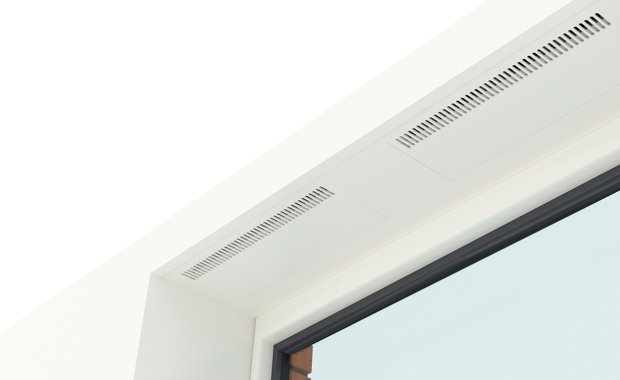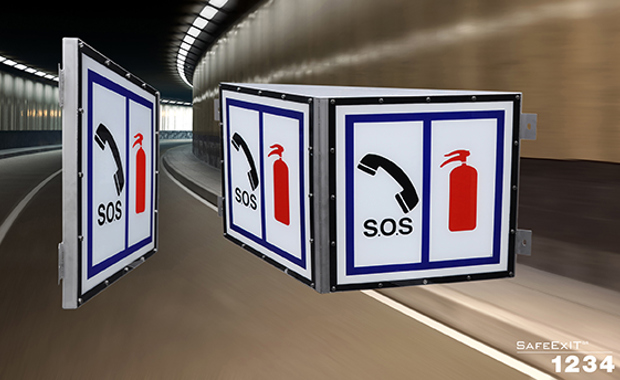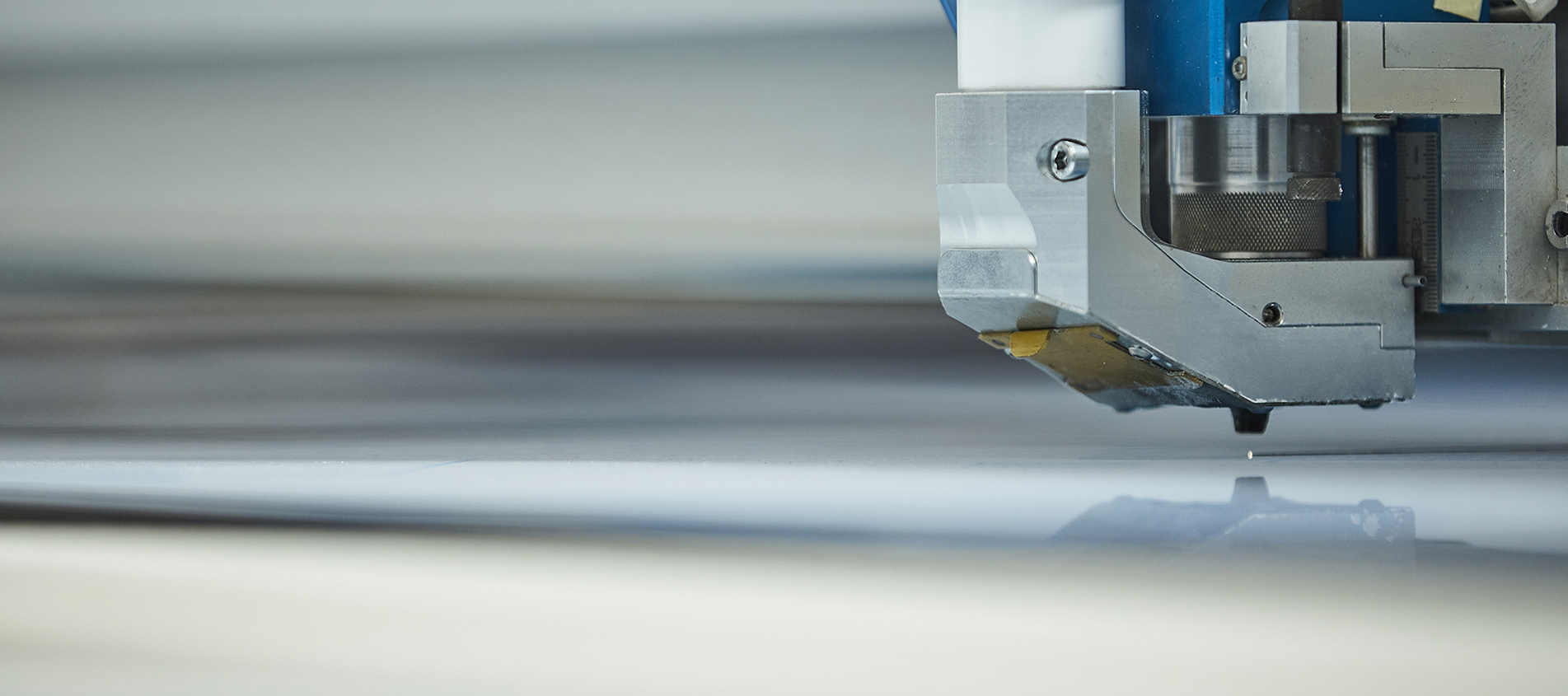Polyvinyl chloride (PVC)
What is PVC?
PVC is an abbreviation for polyvinyl chloride. It is an amorphous thermoplastic.
In contrast to many other types of plastic, PVC is made not just from crude oil, but from a mixture of crude oil and salt (NaCI).
The reputation of PVC has been somewhat tarnished due to the poisonous substances in the material, such as for example phthalates. Today however, such substances have been replaced by non-harmful alternatives. Today, PVC complies with the REACH regulation.

What types of PVC are there?
Several types, which can be roughly divided into three: hard PVC, soft PVC and foamed PVC.
At Induflex, we process all three types and can therefore manufacture your part, no matter which type is involved.
Hard PVC (solid PVC)
Hard PVC is a solid plastic that comes in several colours. At Induflex we process hard PVC sheets in various measurements such as 2000 x 1000 mm, or 3000 x 1500 mm.
Soft PVC
Soft PVC is a transparent material. Soft PVC often comes in rolls, and there is almost no limit to the length of objects that you can have processed and manufactured in soft PVC.
Foamed PVC
Foamed PVC – known by the brand name Vikupor – is available in many colours and surface types. Items in foamed PVC are produced from sheets of varying thickness.


Products made of PVC
Hard PVC is the most commonly used of the three types. Hard PVC is certainly the best known in the construction sector, where many roof sheets and gutters are made of this material. Hard PVC is also used for lamps and other lighting.
Many of the items you buy in hardware stores or toy stores, for instance, are also made wholly or partly of hard PVC.
Some PVC is food-approved (FCM); this material can be used in the foodstuff industry.
In the building sector, soft PVC is used for floors: it is better known as vinyl. Because of its elasticity, soft PVC is also suited for underlays and slip-proof mats in various applications.
We mainly use soft PVC to manufacture plastic strips or ribbon curtains for machinery and systems.
Foamed PVC is ideal for projects needing visual impact and POS products, such as signs and podiums.


The characteristics and advantages of PVC
Both soft and hard PVC are thermoplastic materials that can be melted down and reused.
Hard PVC is characterised by its rigidity, hardness and strength. The material is also known for its dimensional stability.
Hard PVC is popular, since it is one of the cheaper plastics. PVC has furthermore a record of chemical resistance, being able to tolerate chemicals, whether acids or bases. PVC also has excellent electrical insulation properties and absorbs very little water.
When PVC becomes too cold, it crystallizes – which means that it can break on impact. It is worth noting the temperature therefore in areas where your PVC parts are going to be used.
Hard PVC can, as a rule of thumb, be used in areas with temperatures between -10°C and 60°C. Soft PVC can on the other hand tolerate temperatures right down to -40°C


Alternatives to PVC
Alternatives to hard PVC
Other, cheaper plastic sheets can be used for the same purposes as PVC, for instance PET, polycarbonate or polyethylene.
Temperatures in the areas of use, chemical resistance and impact-resistance, as well as visual properties may be part of the process to determine which material is the best choice.
Alternatives to soft PVC
Silicone or a rubber can in some instances be used instead of soft PVC.
Alternatives to foamed PVC
Various light-weight sheets and sandwich board are similar in appearance to foamed PVC and can be used for many of the same purposes.
Processing PVC
Hard PVC is a suitable material for machine processing, such as milling and turning.
Soft PVC can be cut by blade, for example on a cutting plotter.
Foamed PVC can be cut and milled and can also be printed with film and digital print. We can cut items in foamed PVC to your measurements and also print on one or both sides of the board.
If we have the material in stock, we can cut your PVC items within five days.
Would you like to know more about PVC or delivery times? Are you in doubt as to which plastic your product should be made from? Please contact us – we will be pleased to help you with your project.
Cases







